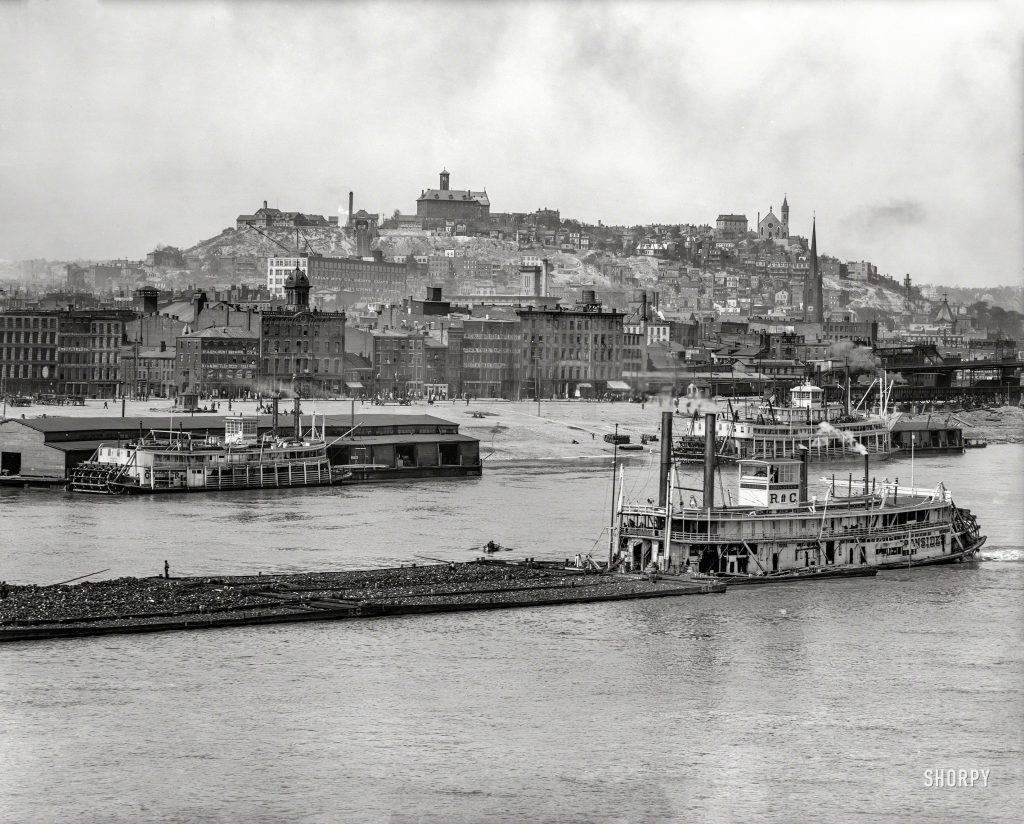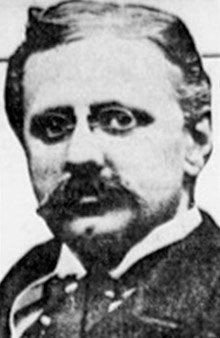
He’s “one of the most robust men in Newport, Kentucky,” his hometown on the Ohio. That’s the general view of Joseph Schulkin. Yesterday, he got influenza. Today, he’s dead. The water flowing by when he became ill is now, at his death, a few miles closer to joining the Mississippi at Cairo, Illinois. The river rolls on.
Also a day old is Dr. William Sharpley’s specially organized “influenza board” in Denver, Colorado. In the 24 hours since its first meeting, college student Blanche Kennedy has died in Denver, influenza’s first fatality in the city. Sharply’s committee knew it was coming. They didn’t know it would be here so soon.
Just a short bit away, readers of the Gunnison, Colorado newspaper see their first article about influenza. Farther north, on up the Rocky Mountain range into Idaho, public health officials announce that influenza will now be reported by doctors in the state.
Again since yesterday, influenza kills 156 people in Boston and drives 200 new patients into Philadelphia’s hospitals.
Taking good news where you find it, thousands of men breathe a little easier today, so to speak. It’s the first full day of postponement for the US military draft—the expected call of 142,000 draftees in October between the ages of 18 and 45 years old is shelved temporarily. Is the delay because of the twenty-day old influenza, the two-day old Meuse-Argonne offensive or an undefined feeling that the World War is about over? It’s not really clear.
The only clear thing is that the war and influenza are melded together. Seamless. Like every day, it’s true today. Ominously.
In the office of Dr. Krusen, Philadelphia’s chief health officer, discussions have turned to tomorrow’s scheduled Liberty Loan parade and rally. Planned for a route near the Schuylkill River, the event will boost local support for the World War, including the purchasing of government bonds to pay for the American effort. Pressure is on Krusen to delay the event much like the October draft call.
But something lurks beneath. A river is more than the surface of the water.
For about three years now, Dr. Krusen has called himself by two different first names. During 1914, with the start of the World War, he decided to interchange his given first-name of “Wilmer” with “William.” He’s of German descent and he feared Wilmer wasn’t “American” enough. So, to avoid suspicions and mistrust, to just step back from any worries about German sympathies or, worse, German agency, he’s now signing letters, official statements, and anything else he can get his hands on with the name “Dr. William Krusen” as often as not.
The pressure surrounding Krusen to allow tomorrow’s Liberty Loan event is exactly the pressure that compelled him to alter his first name. He’ll need to decide very soon.
Like Dr. Krusen, Dr. Alva Carnes in Dallas, Texas, thinks about the Liberty Loan extravaganza planned for his city tomorrow. As the Dallas health commissioner, Dr. Carnes has the influence and authority to make the final decision on the event.
The river runs in Wisconsin, too. Today’s edition of the Jefferson County (WI) Union includes an article about the “seriousness” of influenza. At the same time, work goes on today at the Military Morale Section (MMS) of the Military Intelligence Division within the War Department at Washington DC. Staff by 1250 people—300 American military and 950 civilian employees—the MMS exists in order to gauge among new soldiers both their mental fitness and their emotional support for the war. Psychologists at the MMS have been using new testing devices to measure the soldiers’ attitudes.
A person in Jefferson County, Wisconsin reads the local article in today’s Union and begins thinking about the mental impact on soldiers from Wisconsin who read the piece.
Influenza doesn’t read the newspaper, doesn’t purchase war bonds, and doesn’t wear a military uniform. But it likes people and especially groups of people. The bigger, the better.

A thought for you on Day 20, April 1, 2020, twenty days after President Trump declares Covid-19 a national emergency—the war or, rather, the dominant public issue, trend, and dynamic. We’ve seen it before, and again and again and again. Whatever most motivates and animates Americans in 1918 before influenza arrives will intermingle with the sickness as time flows by. Take one of a hundred examples: the war must be paid for, bonds are offered, and events staged to drum up buyers—all of it exists before and apart from influenza. Influenza doesn’t care, not on Day 1 or Day 101. And then think of Dr. Krusen who holds community health in one hand and individual identity in the other. The examples go on and on. This is where I think the past has enormous value. In addition to serving as a source of inspiration and steadiness, it expands your imagination and creative thinking. You can envision and anticipate more instances to expect now by knowing how the actual instances occurred then. Don’t…get bogged down with assumptions about repeating the past. Do…get uplifted and elevated by using the past to broaden your awareness and ability to see new dimensions.
(note to reader—I invite you to subscribe to this series/blog. The purpose of my posting in this series is the purpose of my enterprise at Historical Solutions—to explore the past in a new way that brings new and different value to you, both in the present (this minute) and on the edge of the future (what’s ahead or forward of this minute). The past is everything before now, the totality of all time before the present; history is a set of very small slices of the past that, for a particular reason, have been remembered. If you wish to contact me privately, please do not hesitate to text or call 317-407-3687–one more thing–I’m doing FREE 15-minute phone calls I’m terming “Coffee Chats”–that’s where a person and I talk about the historical event, place, or individual of their choice after I do research on the topic. I invite you to join me for a Coffee Chat.)







